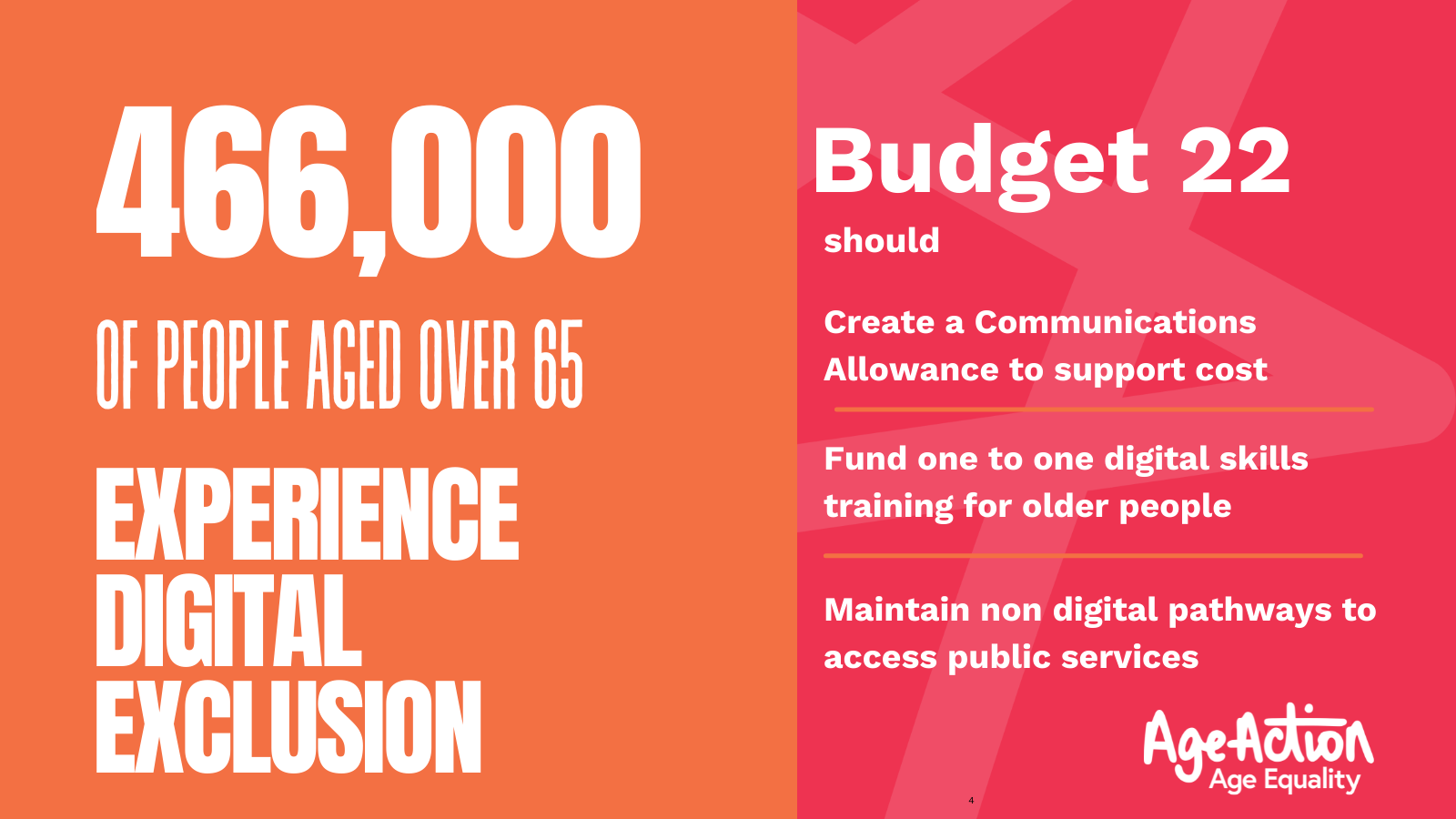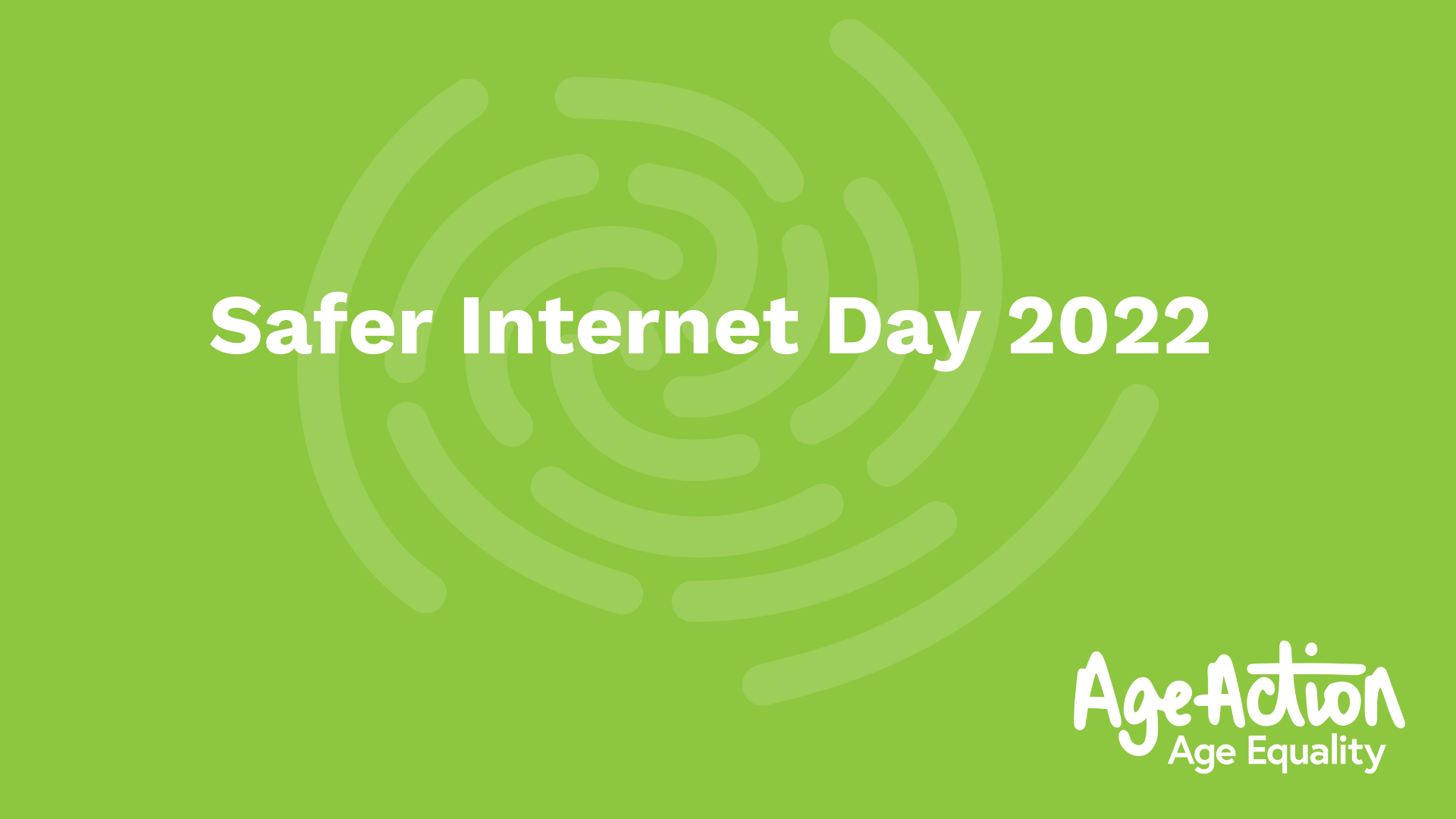(08 Febraury 2022) Today is Safer Internet Day where people are encouraged to talk, listen and learn about being safer when using the internet.
Age is still the biggest indicator of who is digitally excluded meaning that people are either not using the internet or they lack the digital devices or skills to navigate the internet safely; at least 466,000 people over the age of 65 experience digital exclusion.
Age Action is calling on Government to create a Communications Allowance to help cover the cost of access to the internet for people on low fixed incomes. Sufficient funding for all public services should be provided to adequately staff alternatives to digital modes of communication to mitigate digital exclusion in addition to expanded funding for digital skills training.
In addition to our advocacy work, Age Action’s Getting Started Programme has supported over 35,000 older people to improve their digital literacy through one to one learner led sessions. Supporting people to be safe online, avoid scams, frauds and false information is a priority for Age Action. Age Action has produced a free Getting Started KIT includes a guide on how to avoid false information which is produced with the support of Media Literacy Ireland and Dublin City University School of Communications. To mark Safer Internet Day our Getting Started Volunteers undertook training with An Garda Siochana Cybercrime Unit so they can better support people to be safe.
The CSO recorded crime stats for Q2 2021, published on 29 September 2021, showed a 40% increase in fraud offences in the year to June 2021 when compared to the previous year. This increase mostly occurred in Q1 and Q2 of this year and primarily relates to fraudulent attempts to obtain personal or banking information online or by phone as well as fraudulent use of credit and debit card information. Fraud Smart Ireland, a fraud awareness initiative developed by Banking & Payments Federation Ireland, advises;
- Be Informed:Stay in control, don’t be rushed and make a decision you or your business will regret.
- Be Alert:Always double check random or unexpected emails, calls or texts requesting personal, business or financial information.
- Be Secure:Never give your security details such as full banking password, codes/login details, or PIN to anyone.


